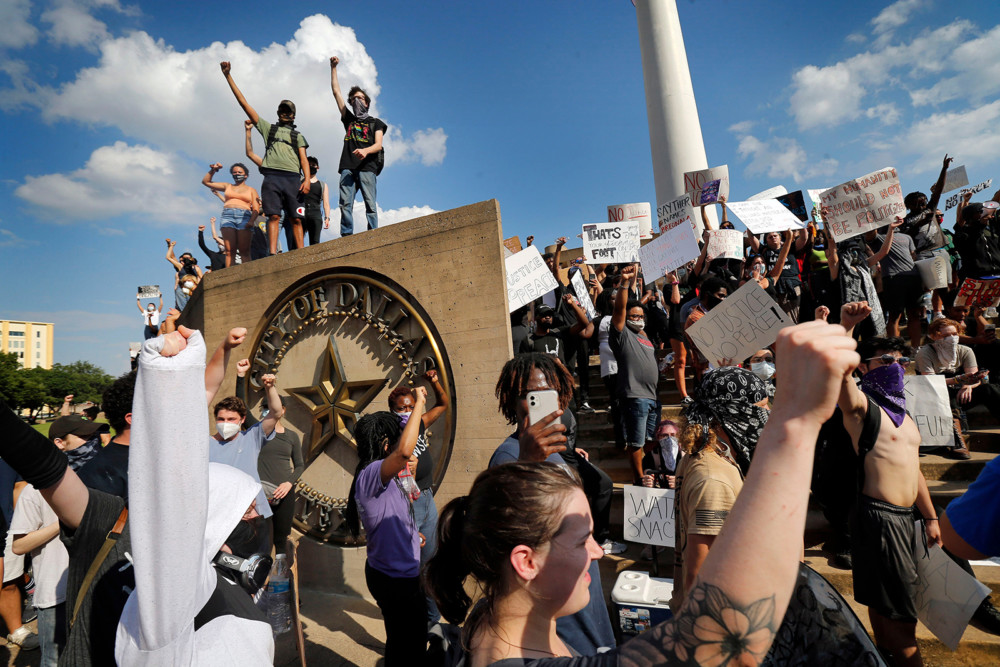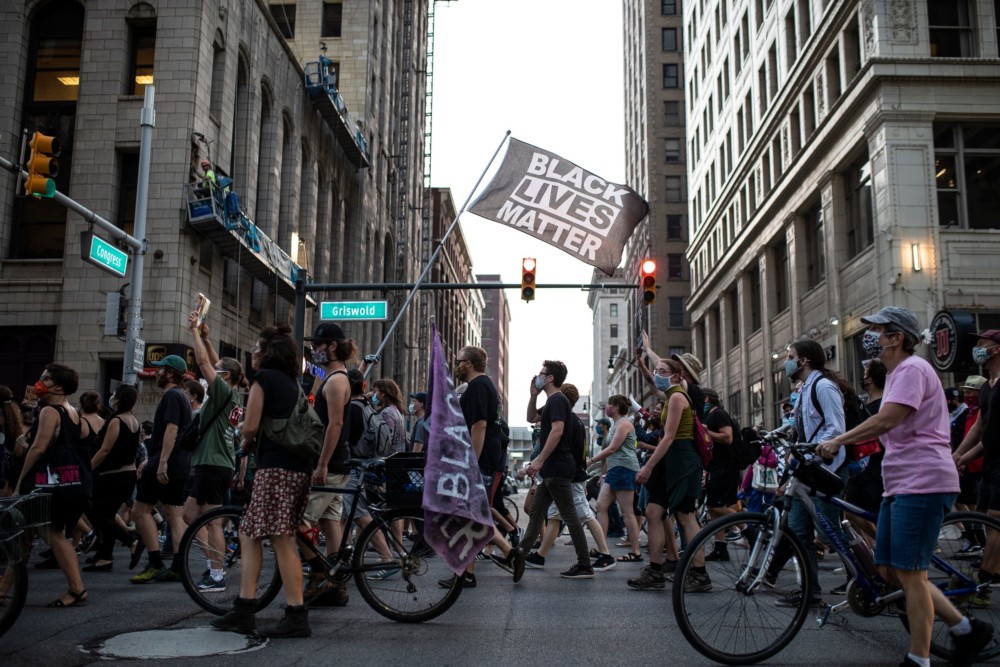By Alexia Elejalde-Ruiz
Chicago Tribune
WWR Article Summary (tl;dr) Alexia Elejalde-Ruiz takes a look at the legal ramifications for both employers and employees.
Chicago
Thousands of people have taken to the streets and to social media in recent weeks to express solidarity with, or in some cases, objections to, the Black Lives Matter movement against police brutality.
But can they say and do anything without risking their jobs?
Let’s break it down.
Right to free speech
Private-sector employees have no federal free speech protections when it comes to their jobs. Some states have laws protecting employees who engage in off-duty political activity, but in Illinois that law applies only to elections and voting.
So private-sector employers would be within their rights to fire or discipline workers for protesting or spouting off on social media (with some exceptions), but attorneys urge caution against doing so outside of extraordinary circumstances.
“An employer should tread carefully because the backlash they might face from a public relations standpoint could have significant consequences,” said Phillip Schreiber, an attorney with Holland & Knight who represents management.
The First Amendment right to free speech does protect public-sector employees. Their employers, the government, can’t prohibit them from or retaliate against them for protesting or speaking out, as long as they don’t engage in criminal conduct and the issue is of political or social concern to the community rather than a personal gripe.
Public employers can still enforce their attendance and dress code policies, so a worker could get in trouble if they skip work or wear their uniform at a protest, Schreiber said.
Some First Amendment lawsuits have already arisen from the recent protests inspired by the death of George Floyd at the hands of a white Minneapolis police officer.
In Chicago, a CTA bus driver sued the agency for allegedly violating his free speech rights, claiming he was suspended for talking with other drivers about concerns that they had about transporting police officers during the protests. The suit says some drivers have religious and moral objections to serving law enforcement.
Anti-discrimination protections
All employers are bound by anti-discrimination laws that protect workers from unequal treatment based on race, religion and other protected classes.
Companies could be in violation if they crack down on certain employees but not others who engaged in the same behavior, or if they treat participation in Black Lives Matter protests differently from participation in other protests, like the Women’s March.
“You’re tolerating some political speech but not others,” said Megan O’Malley, a partner at employment law firm O’Malley & Madden who represents workers.
Starbucks risked running afoul of such laws when it sent a memo to employees warning them not to wear accessories bearing messages of the Black Lives Matter movement, saying its dress code policy prohibits buttons that “advocate a religious, political or personal issue.” The response from some employees was that the company had allowed, and even encouraged, employees to wear LGBTQ buttons and attire supporting marriage equality, according to BuzzFeed News.
Starbucks reversed the policy as public backlash began to mount, announcing instead that it would make and distribute Black Lives Matter T-shirts to employees, who would be permitted to wear their own memorabilia until they arrived.
More employers may find themselves navigating that situation as offices reopen amid the pandemic and employees come back with the latest fashion accessory: face masks.
If employers allow workers to wear masks with Cubs logos but not with Black Lives Matters logos, they may find themselves with a suit on their hands.
“It’s when you start inconsistently enforcing the policies that employers run into problems,” said Aaron Holt, an attorney with Cozen O’Connor who represents management in employment cases.
Incendiary conduct
If employees, public or private-sector, make incendiary or offensive comments at protests or on social media, even during nonwork hours, they could violate company harassment or anti-discrimination policies.
Employers are required under Title 7 of the Civil Rights Act to provide a discrimination-free workplace, so they wouldn’t only be within their rights to discipline such employees but obligated to do so.
“If the company didn’t take action they might have some civil rights issues,” Holt said. “If they do nothing, the argument will be that they tolerated that conduct, that that is their standard operating procedure.”
Most firings in the wake of Floyd’s death are of people making racist statements or engaging in racist conduct, Holt said.
FedEx fired an employee for engaging in a Blue Lives Matter counterprotest that mocked Floyd’s death by re-enacting the scene of the officer pressing his knee against his neck. A New Jersey corrections officer who was involved in the re-enactment was suspended from his job.
Labor law
Speaking out about working conditions alongside fellow employees is protected under the National Labor Relations Act, regardless of whether employees are unionized or public or private sector.
That is happening a lot on social media, as employees call out their employers for lack of diversity, unequal pay or behavior they believe to be discriminatory. The criticism has led to a parade of leaders being ousted or suspended, notably at media companies such as Bon Apetit and Variety.
Though the Black Lives Matter protests are focused on police brutality, co-workers who participate to bring attention to issues of race underrepresentation at their employer could potentially claim protection under labor law, O’Malley said.
Other worker rights
Employers also may not maintain a record of an employee’s off-duty political activities, and they cannot force employees to share their online activity, she said.
___
Distributed by Tribune Content Agency, LLC.

















































































































































































































































































































































































